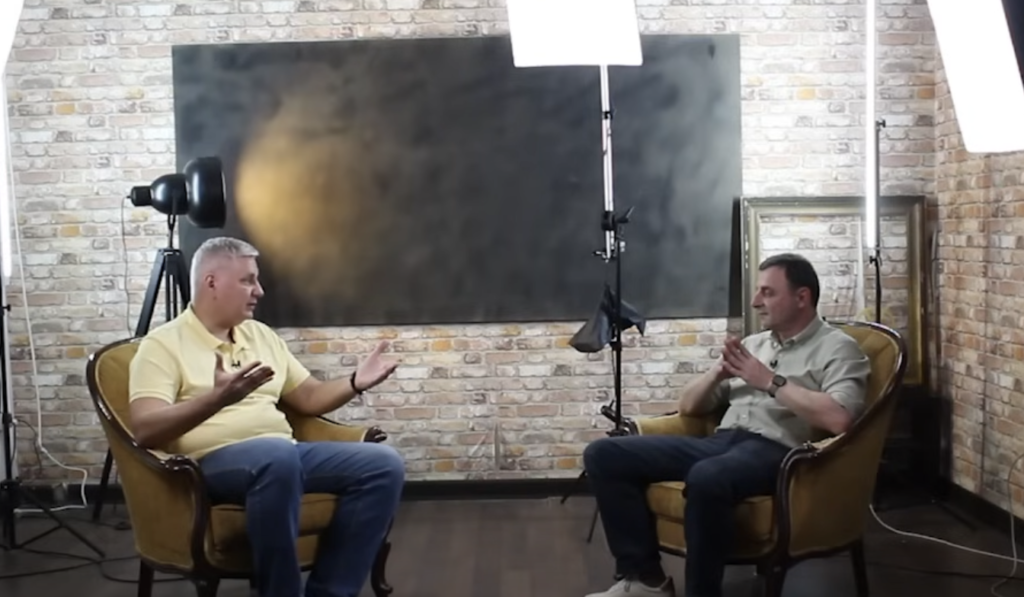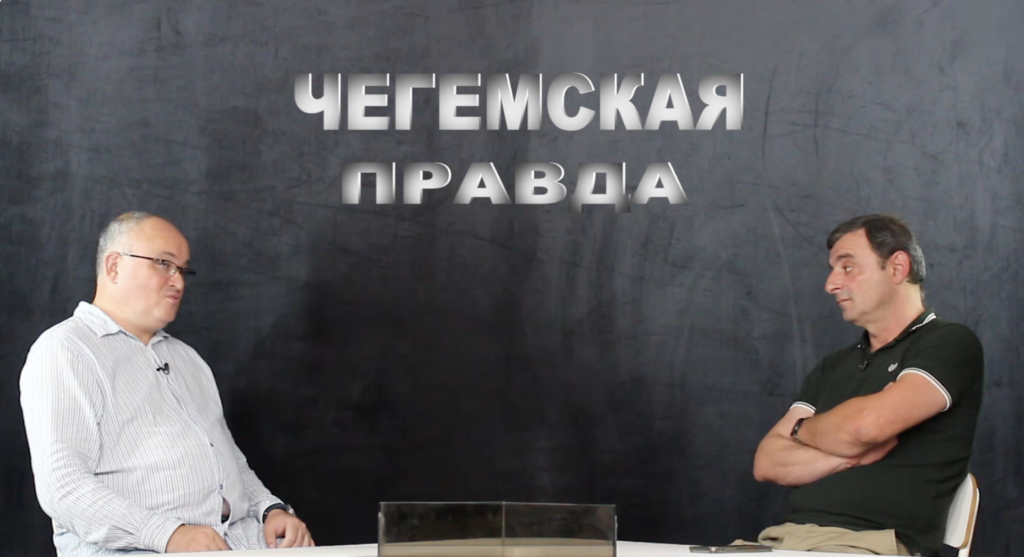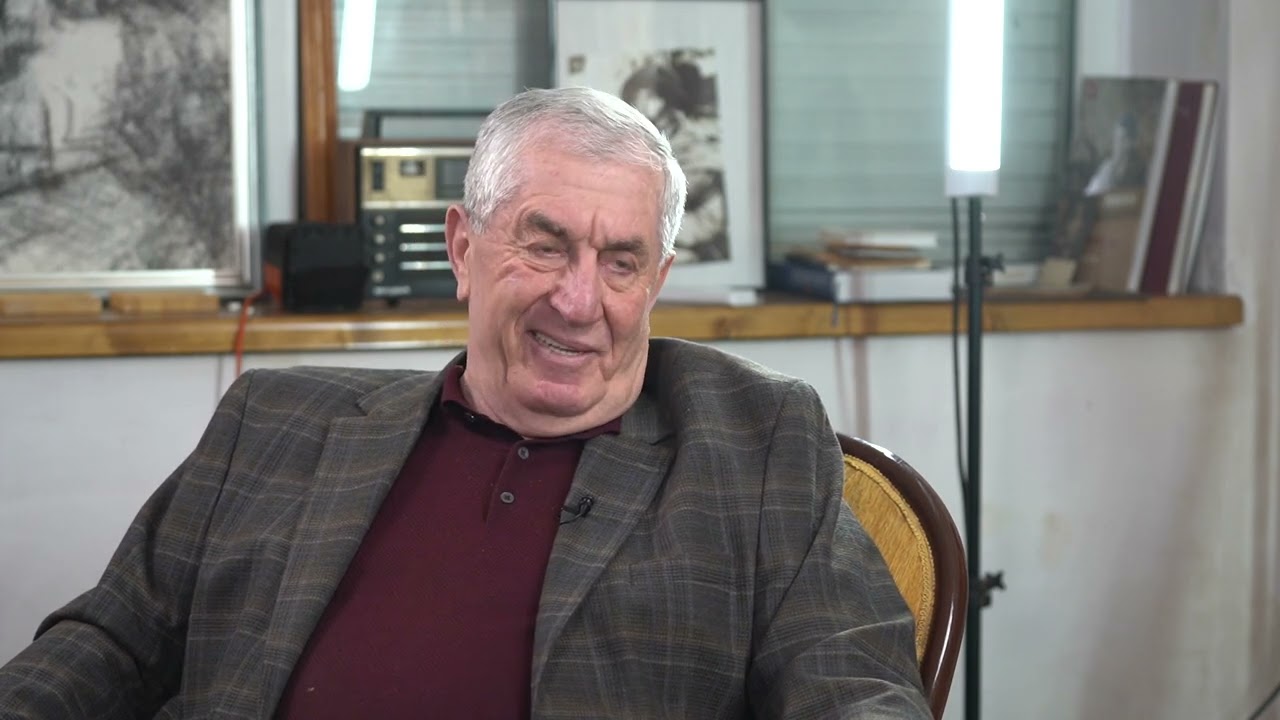Online conversation between Shamba and Kolbaia
Secretary of the de facto Security Council of Abkhazia and former Foreign Minister Sergei Shamba believes that the Georgian-Abkhazian conflict “should not be left to our children and grandchildren”, and “it is necessary to look for opportunities for peaceful coexistence”
Shamba said this during an online conversation with Vakhtang Kolbaia, former chairman of the government, member of the Supreme Council of the Abkhazian Autonomous Republic (in exile). Shamba and Kolbaia answered questions from Georgian journalist Vano Chokoraia.
Shamba stated that in both Georgian and Abkhazian societies there is still aggression towards each other because of the conflict. He also expressed hope that this is temporary:
“I think that with time it will pass, it is true that a lot of time has passed after the war, 30 years already, one could somehow start some movements towards mutual understanding. But it is slowly happening.”
Shamba emphasized the importance of public diplomacy several times during the interview:
“I have always supported public diplomacy and when I was Foreign Minister, our representatives very often met with Georgian opponents. It was an opportunity to understand each other’s positions. This is very important for the beginning to somehow move the problem from zero.”
The Abkhazian politician believes that it is necessary to establish ties with each other through different channels.
“There is a conflict between our peoples, much is due to historical circumstances and especially the war, and to overcome this conflict it is necessary to talk and seek ways of mutual understanding for further coexistence,” Shamba said.
At the same time, he emphasized that his position on the conflict is not liked by many in Abkhazia.
“I have repeatedly spoken on this topic, and many in the Abkhazian society do not like my position, but I have always said that if there is a problem, then first of all it is necessary to talk. There are no such nations, neighboring, close or even related, which do not fight among themselves. All of Europe is an example of this,” Shamba said.
Georgian politician Vakhtan Kolbaia agrees with Shamba that public diplomacy and relations are necessary. According to Kolbaia, similar positive signals were heard from Sukhumi immediately after Aslan Bzhania became president.
“I understand that there was talk about economic cooperation, but as they say, not everything is lost yet, if only there was a desire,” Kolbaia said.
This type of direct dialogue between Georgian and Abkhazian politicians has been a rarity in recent years. As Kolbaia says, “this was the first conversation with Shamba after the war.”
“The conversation was very short. We have not communicated with each other in 30 years, it was practically the first time such a face-to-face meeting took place online, and it proved that direct dialogue is possible. We talked about Georgian-Abkhazian relations. When we talk about dialogue, everything is taken into account,” Kolbaia said in a conversation with the TV channel “Formula”.
“We talked about whether dialogue is necessary and he confirmed that there is nothing better than dialogue. As for the place of Russia in this dialogue, we did not mention Russia at all. We spoke only about Abkhazian-Georgian relations. He told me that nothing prevents dialogue.”
According to Kolbaia, Shamba named establishment of economic ties between Sukhumi and Tbilisi as one of the means.
“Shamba and Kolbaia’s dialogue coincided with the works on Inguri and the opening of the bridge – until now our policy was not to have direct formats of communication. Is there a change in policy happening somewhere behind the scenes,” opposition MP Teona Akubardia commented.
She notes that the problem is informal politics and that the public has no information on whether Georgia is changing its policy towards direct dialogue.
“I am not against dialogue, there was Bzhania’s proposal for direct dialogue, which Georgian Dream did not vote for. Until now, Georgian Dream has been silent in response to the proposal for dialogue, and suddenly we see that the dialogue was held remotely. So I have questions about the policy change… Does the policy change when we learn about such a dialogue, or does it not change?” Akubardia said.
“We have the only path – dialogue, reconciliation, mutual forgiveness with our Abkhazian and Ossetian sisters and brothers, and the more general path that our country is on is the path of development and peace. This is a message for them as well, so we have to talk to them directly, we have to reconcile with them,” responded Mamuka Mdinaradze, executive secretary of the ruling Georgian Dream party MP.
“Just as a serious conflict can happen between people in a family and forgiveness is necessary so that the family can be reunited, so we should look at our brothers as a family because they are part of us. We very often talk about about the annexed territories, but we should never forget to talk about people when we can forgive each other something,” Mdinaradze said.


